When you’re eating out, the last thing you want is food poisoning. Some menu items are more likely to be contaminated or past their prime, ruining your night. From sketchy seafood to risky raw dishes, these can quickly turn your dining experience into a nightmare. While most decent restaurants keep things safe, it never hurts to be cautious. Before ordering that tempting dish, consider if it’s worth the risk of spending the next day sick.
1. Raw Sprouts
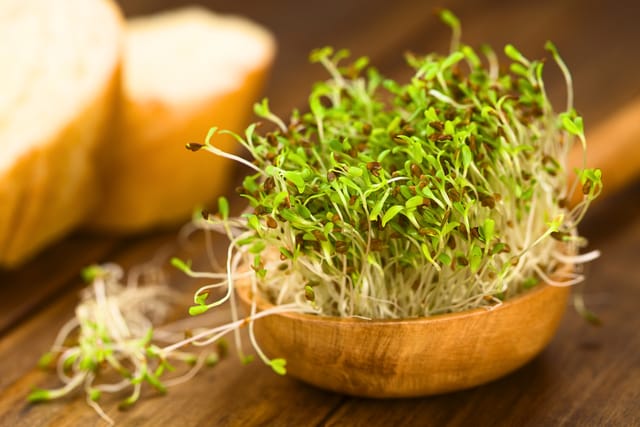
Alfalfa, bean, or any kind of sprout – these little guys are bacteria magnets. Their growing conditions are ideal for nasty bugs like Salmonella to flourish. Unless you’re 100% sure of the restaurant’s hygiene standards, skip ’em. Better yet, stick with sprouts you’ve grown safely at home, or opt for cooked vegetables for that satisfying crunch. Even homegrown sprouts carry some risk, so consider their safety carefully.
2. Pre-Cut Melon
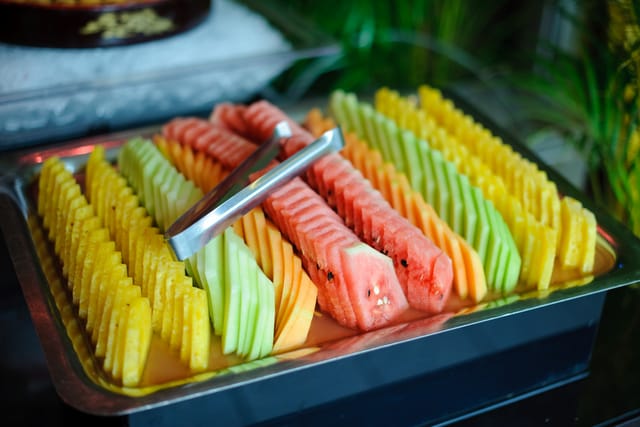
Cantaloupe, watermelon, etc., are delicious, but their high water content is a breeding ground for bacteria. If those slices have been sitting out, contamination risk skyrockets. Opt for whole melon prepared fresh when you order. If that’s not possible, at least choose a piece that doesn’t appear overly wet or discolored. And remember, even a freshly cut melon isn’t entirely risk-free.
3. Raw Oysters
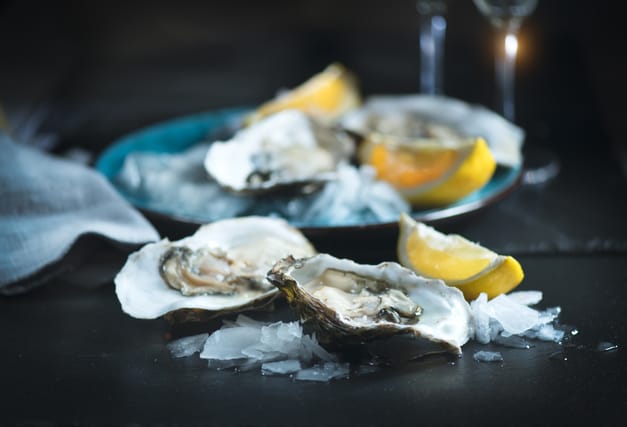
A controversial one! Oyster fans swear by them, but they inherently carry risk. Bacteria like Vibrio can cause serious illness – especially dangerous for the immunocompromised. If you must indulge, go to a reputable, high-turnover seafood place. And remember, even the freshest oysters can’t eliminate the risk entirely. If you have health concerns, delicious cooked oyster options can be just as satisfying.
4. Undercooked Ground Meat
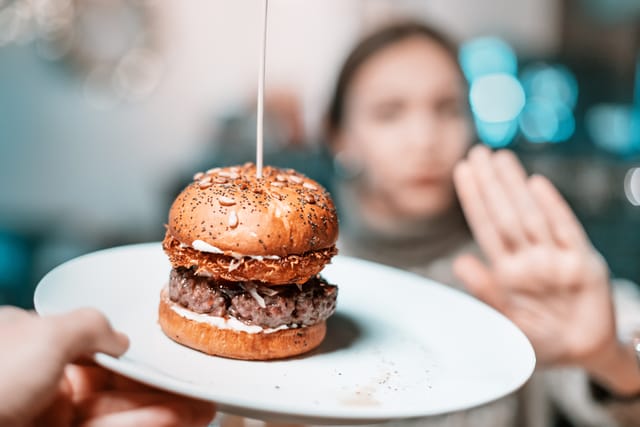
Ordering your burger rare is asking for trouble. With ground meat, bacteria is mixed throughout, so only cooking the outside isn’t enough. Stick with medium-well or well-done to be safe. If you love the flavor of a rarer burger, consider asking your favorite restaurants if they’d be willing to grind a fresh piece of steak for you on the spot. Many restaurants are happy to provide this service for their customers.
5. Dishes With Raw Eggs
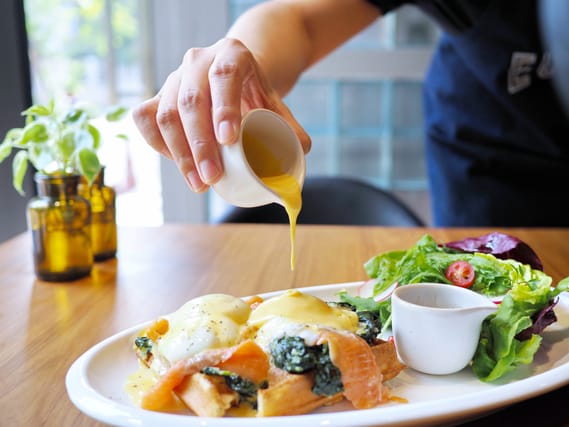
Caesar salad dressing, Hollandaise sauce, homemade ice cream… If the eggs aren’t pasteurized, there’s a Salmonella risk. Most places are good about this, but it doesn’t hurt to ask, especially at smaller establishments. Some places might offer a pasteurized version of a classic recipe – always best to inquire and make sure! If unsure, stick to dishes with cooked eggs for peace of mind.
6. The Salad Bar
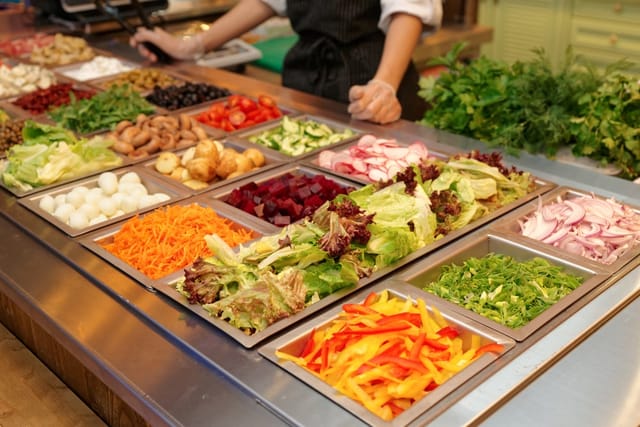
It’s tempting, but salad bars are germ buffets. Sneezes, dirty hands, kids touching everything – it’s a recipe for cross-contamination. Stick with made-to-order salads for a safer option. If a salad bar is the only choice, look for items that are less prone to contamination, like sturdy vegetables and whole olives. Always observe the hygiene practices at the salad bar before making your selection.
7. “Runny” Eggs

Sunny-side up or poached eggs with gooey yolks are delicious, but risky. That uncooked yolk could harbor Salmonella. Pregnant folks, young kids, and the elderly should opt for fully cooked eggs to minimize risk. If the dish is otherwise perfect, ask the kitchen if they can cook the egg slightly longer for you. Remember, foodborne illness can impact anyone, so assess the risk accordingly.
8. The Mystery Buffet
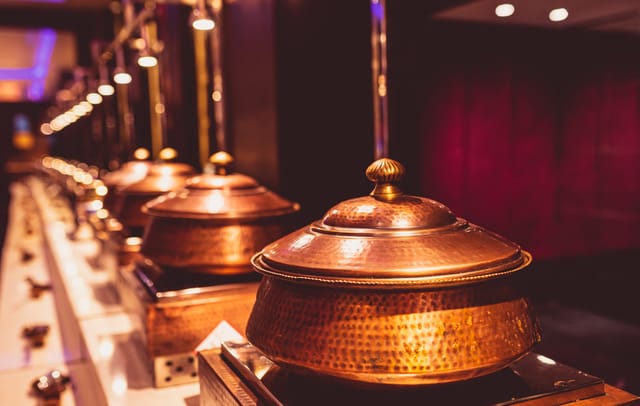
Food sitting in lukewarm chafing dishes for hours? Hard pass. Bacteria multiply rapidly at tepid temperatures, making buffets a potential food poisoning minefield. Opt for restaurants that cook fresh to order, or at least where you can see the buffet food is actively being replaced and kept at the appropriate temperature. Look for steam rising from the food or other indicators that it is being kept hot enough.
9. Rare Tuna Steaks
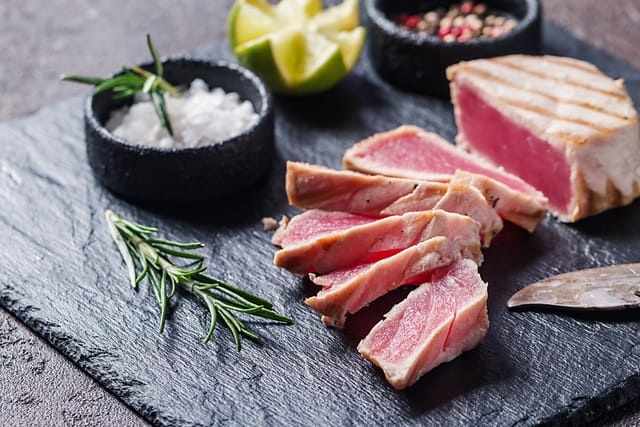
Perfectly seared ahi tuna is amazing, but slightly undercooked carries the risk of parasites. Stick with fully cooked, or opt for sushi-grade tuna from reputable places that specialize in it. If you’re unsure, ask your server about the quality and freshness of their tuna, so you can make an informed choice. Don’t be afraid to order it cooked through to avoid any potential problems.
Enjoy this piece? Give it a like and follow Bolde on MSN for more!



